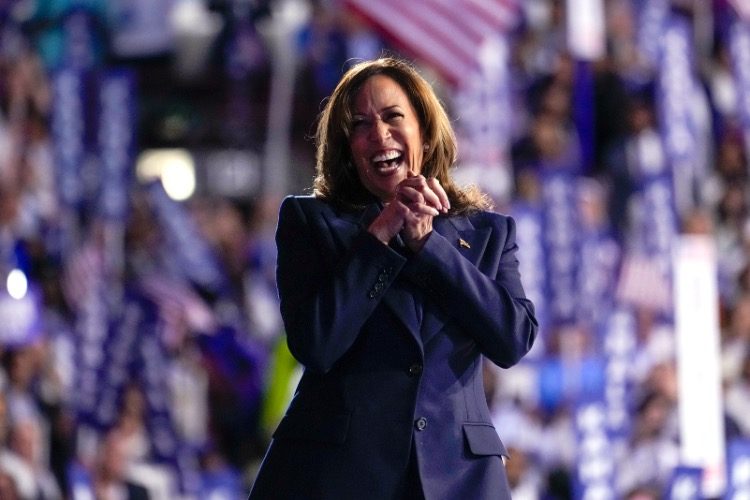
Even Democrats on Capitol Hill fear Vice President Kamala Harris’ plan to fight price gouging.
Several of the lawmakers told Politico that Congress won’t pass the plan because it’s too radical. Even a Washington Post columnist denounced it.
That’s because it does, indeed, smack of “socialist price controls,” as GOP rival and former President Donald Trump says. And it’s one reason, as The New American reported last week, that mainstream commentary is riddled with the words “Harris” and “communist” in the same sentence.
The Plan
Harris pulled the idea from a bill introduced by Senator Elizabeth Warren (D-Mass.).
Harris, whose totalitarian urges seem encoded in her DNA, would greatly increase the power of the Federal Trade Commission and other federal bureaucracies for more antitrust action, the website reported. As well, she will ban “excessive” price gouging, and give the FTC the power to crack down on it.
As WaPo scribe Catherine Rampell noted, Harris will fight “excessive prices” and “excessive corporate profits,” particularly for groceries. But “what level counts as ‘excessive,’ you might ask?” Rampell asked. “TBD, but Harris will ban it.”
Continued Rampell:
That’s the thing about price gouging: As has been said of hardcore pornography, you know it when you see it….
[H]er campaign said the first 100 days of her presidency would include the “first-ever federal ban on price gouging on food and groceries — setting clear rules of the road to make clear that big corporations can’t unfairly exploit consumers to run up excessive corporate profits on food and groceries.”
What are these “clear rules of the road” or the thresholds that determine when a price or profit level becomes “excessive”? The memo doesn’t say, and the campaign did not answer questions I sent seeking clarification.
Rampell’s headline put it this way: “When your opponent calls you ‘communist,’ maybe don’t propose price controls?”
No wonder Democrats are running away from the plan as fast as they can, as Politico reported.
“Under pressure to defend Kamala Harris’ grocery price gouging plan, some Democratic lawmakers are delivering a quiet message to anxious allies: Don’t worry about the details. It’s never going to pass Congress,” the website disclosed.
The bill “has no chance of passing Congress anytime soon,” and whether the Democrats control the White House and House and Senate won’t matter. A half-dozen lawmakers and five aides told Politico that “Democrats in Congress have privately been telling critics that this part of the Harris plan is not viable.”
Forgetting Republican opposition, “Democrats remain skeptical, or at least uncertain about how Harris would carry out her proposal.… ‘I honestly still don’t know how this would work,’ said a second Democratic lawmaker.”
Harris has been under pressure to provide more detail on her policy priorities, after four years largely toeing the line set by President Joe Biden and his aides. The rollout of her plan to combat food inflation, however, has sparked concerns among business leaders over which economic advisers are driving her policy decisions. Pieces of her plan, like increasing competition in the meat sector, are straight from the Biden playbook under his former top economic adviser Brian Deese — who is now advising Harris’ campaign. But the broad price gouging language that’s triggered so much backlash signals a more progressive agenda.
That backlash has tempered Harris allies’ initial push to paint the proposal as a bold, progressive idea. Since introducing the price gouging plan, her advisers have sought to soften criticism of the proposal by downplaying its overall impact on the market — and emphasizing that the goal is simply to target a small cohort of potential “bad actors,” rather than generate the kind of sweeping overhaul suggested by the plan’s initial rollout.
Brian Nelson, a top Harris economic adviser, told reporters at the Democratic National Convention in Chicago that the plan simply aimed to match up federal standards with so-called price gouging guardrails that already exist in 37 states — many of them Republican-led. Harris allies note in some of those states, it’s Republican officials who are the enforcers.
But those restrictions would only apply during emergencies, like the Covid pandemic, and largely just empower agencies to more aggressively go after pricing behavior far outside the norm.
“She’s going to work with Congress to ensure that it is directed at bad actors, bad activity,” Nelson said. “It’s not meant to set prices or price levels or anything like that. And that is not the way current state laws around price gouging are.”
Granted, as Politico and other media note, 37 states, some controlled by Republicans, already enforce anti-price-gouging statutes.
But again, those rules apply to price-gouging during emergencies, natural disasters, and market disruptions. The model for Harris’ plan, Warren’s bill, on the other hand, forbids “price gouging at the federal level — anytime and anywhere.”
And no need to wonder who will define what “bad actor” or “bad activity” mean — if a Harris administration even bothers to define them. Or, as Rampell explained, “excessive profits” and “price gouging” itself.
And more to Rampell’s point, Fox Business cited Patrick Gourley, an economics professor at the University of New Haven.
“It’s really important to know what would constitute price gouging,” he told Fox:
There isn’t an official definition. If you want to say if the economy is in a recession you can’t price gouge, well we have a group that declares recessions, so we would know what that meant. We’re just saying, ‘Oh, companies aren’t allowed to price gouge.’ What is price gouging? Who gets to make that call. Who gets to make that decision? That’s really concerning.
Food Industry Sees Through Plan
Understandably, the food industry isn’t all that impressed, Politico reported.
“The National Grocers Association, an industry group that represents the independent supermarket sector and supports efforts to boost competition in the industry, quickly called Harris’ plans ‘a solution in search of a problem,’” Politico reported:
“Rather than proposing new legislation far-off in the future,” the federal government should focus on enforcing antitrust laws already on the books, the group said.
An industry official told the website that the plan is “not a serious policy”:
“I’m sure it polls well,” the person said. “But it’s an obvious effort to deflect blame from her administration on inflation.” Smaller grocers are already operating at razor-thin margins, they noted.
Kamunism
The merits of the price-gouging plan aside, Harris’ past utterances suggest that she nurses a burning desire to impose her will on Americans.
To eliminate the non-existent gender-pay gap between men and women, Harris has proposed this: “For every 1% differential between what they are paying men and women for equal work, there will be a fine of 1% of their previous year’s profits.”
Harris has also threatened to redistribute wealth, confiscate guns, seize patents from inventors, and ban private health insurance.
H/T: Ace of Spades



